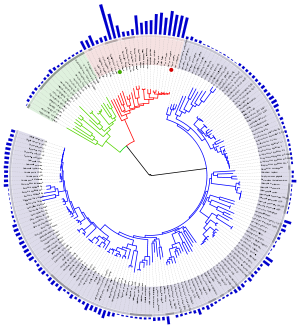Andrew Gelman at Statistical Modeling, Causal Inference, and Social Science.
It's not that the scientific consensus is stupid, it's that some statements are so stupid that they only come because the speaker has processed some aspect of the consensus in a particularly ugly undigested form.
...
...To me, it's another case where the existence of the consensus has switched off people's brains.
"
This point is valid, and well put, but if you read the whole post, I think Andrew Gelman is being far too pessimistic.
> "What do I recommend you all do? On subjects where Phil and I are the experts, I suggest you listen to what we have to say. Beyond that, I dunno."
This is very pessimistic and skeptical of considered consensus, and contradicted by Andrew Gelman's daily life. Before I step into a subway train, I don't form opinions about the quality of considered consensus of civil engineers, and Mr. Gelman does not either.
Commenter "jonathan" makes the point:
> I think you've raised two separate issues. One is the process by which consensus builds, entrenches, shifts, etc. The other is how rational people make rational decisions about information.
> It's interesting to me how in a few notable areas the two are lumped together: the idea that biologists are maintaining some (evil) consensus in favor of evolution and that climate scientists, etc. are doing the same with regard to climate change.
> ...
If you step back and compare "Skepticism of Human Activity Causing Global-Warming/Climate-Change" to established cases of motivated obscurantism, like denying evolution and natural selection, and tobacco carcinogenicity, and the Jewish Holocaust of WWII, and the efficacy of the polio vaccine, and perhaps less established cases of motivated obscurantism like controlled demolition taking down the Twin Towers and HIV/AIDS, you see familiar patterns and similar techniques and motivations both sinister and innocent-by-way-of-ignorance/gullibility. It will seem like bad form to the self-described "Skeptics", but they could bring doubters into their fold by work - the work of authoritatively publishing their opposing immutable thesis, and welcoming that to be subjected to the highest standard of scrutiny. And what are we to make of the "Skeptics" doing everything _except_ that work?
The considered consensus of the scientific experts, here, is slowly growing and publishing an opposing authoritative immutable thesis - far too slowly and too messily and with too much initial unwarranted speculation for an impatient world - but at least they are building something up for possible future champion to knock down. And if it resists being knocked down - we have a consensus where it would be "perverse to withhold provisional consent", using Sagan's phrase.
As for motivation within this possible case of motivated obscurantism, how can I discount the astroturf and sympathetic goodwill David Koch has purchased and does purchase?
If you draw the boundary of consideration small enough "I dunno" seems like honest skepticism of considered consensus. But what is the compelling reason to draw the boundary of consideration so small as to ignore case for motivated obscurantism?



![Reblog this post [with Zemanta]](http://img.zemanta.com/reblog_e.png?x-id=e55e7dad-466b-47d6-83f1-a0546e3fd412)
No comments:
Post a Comment